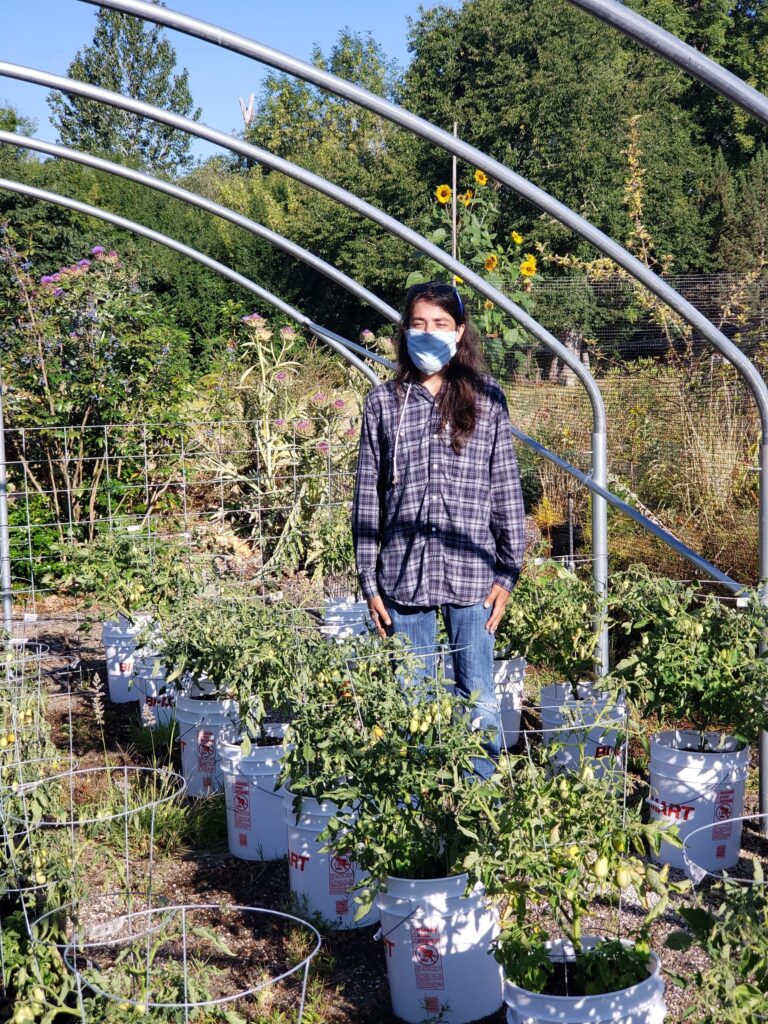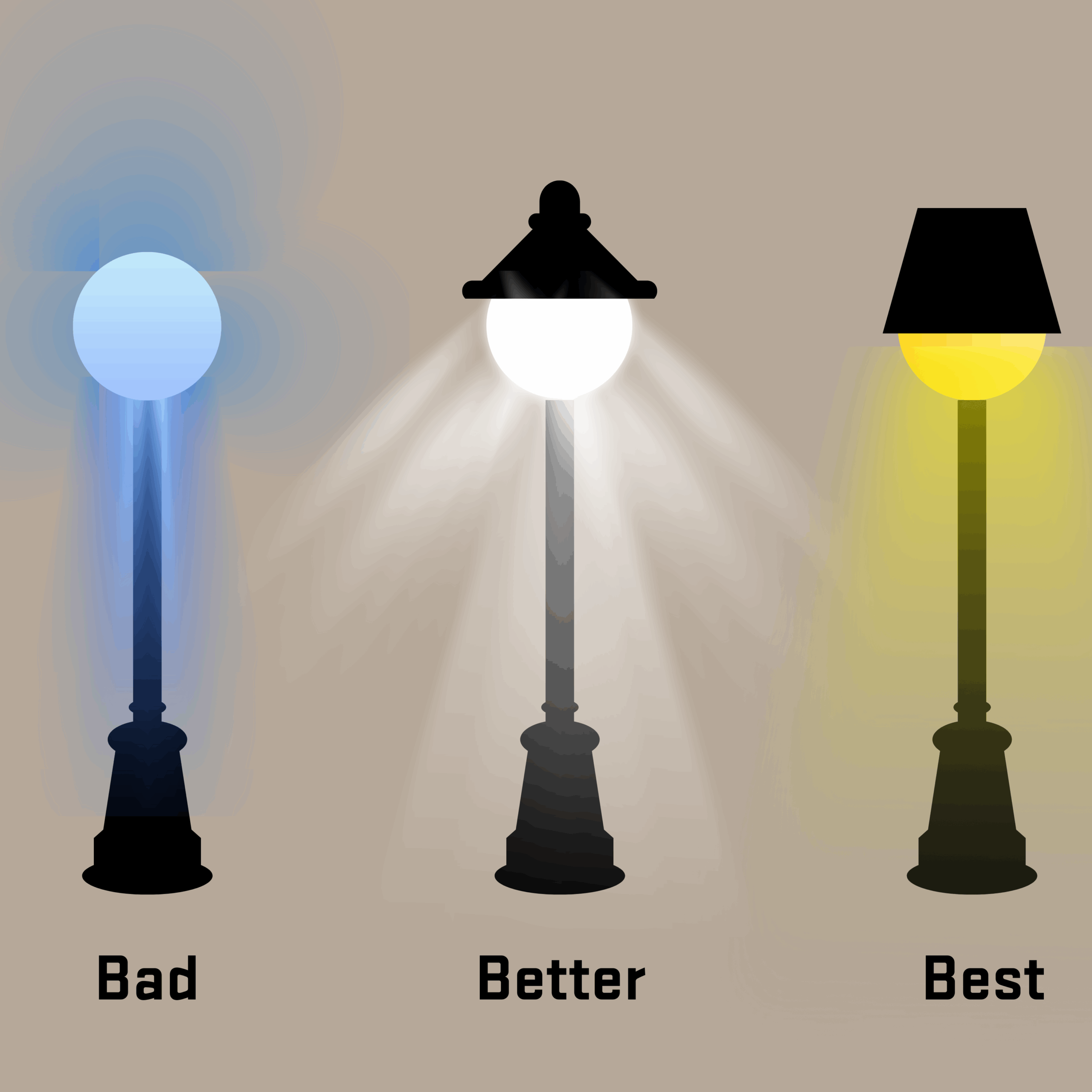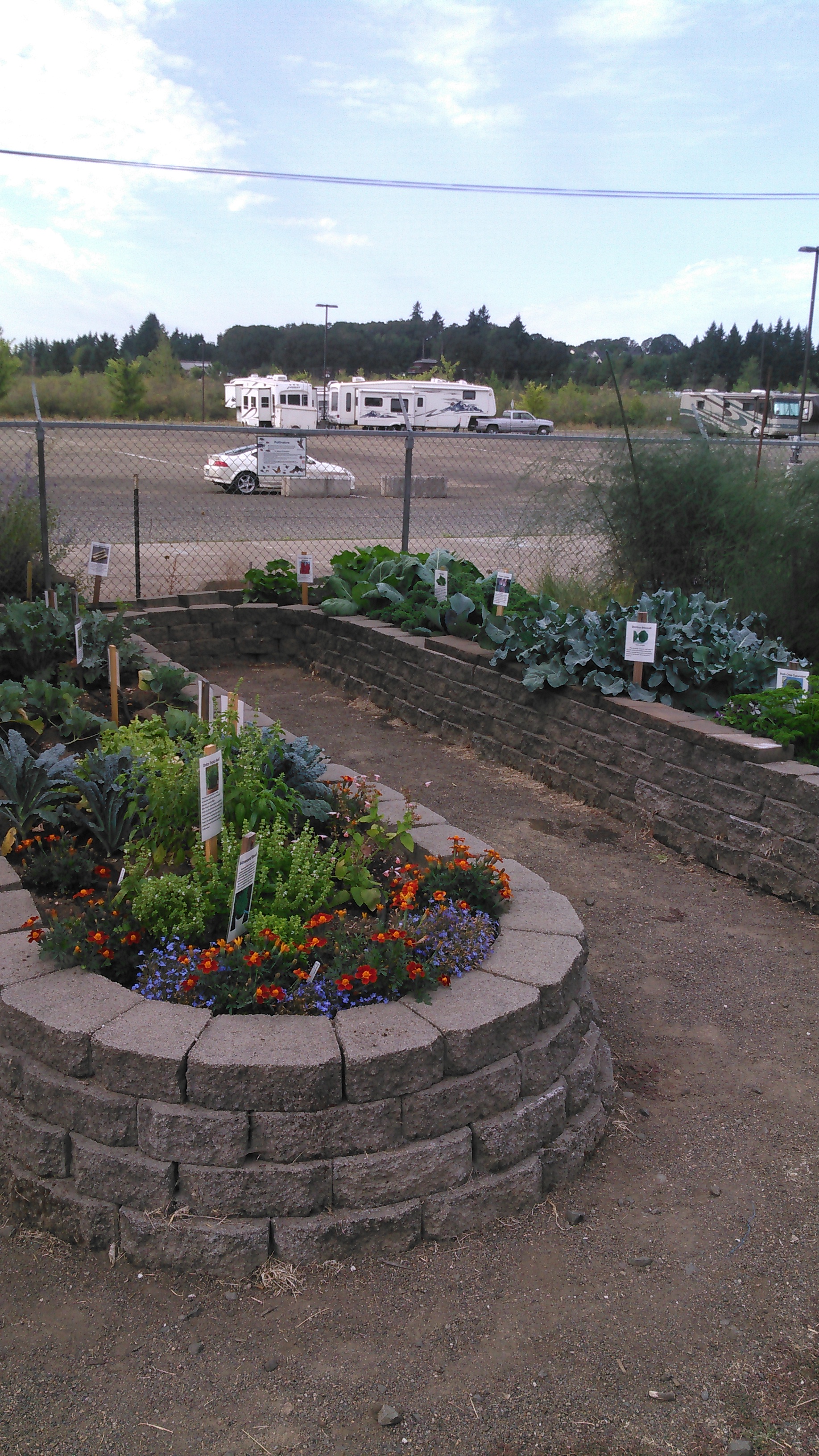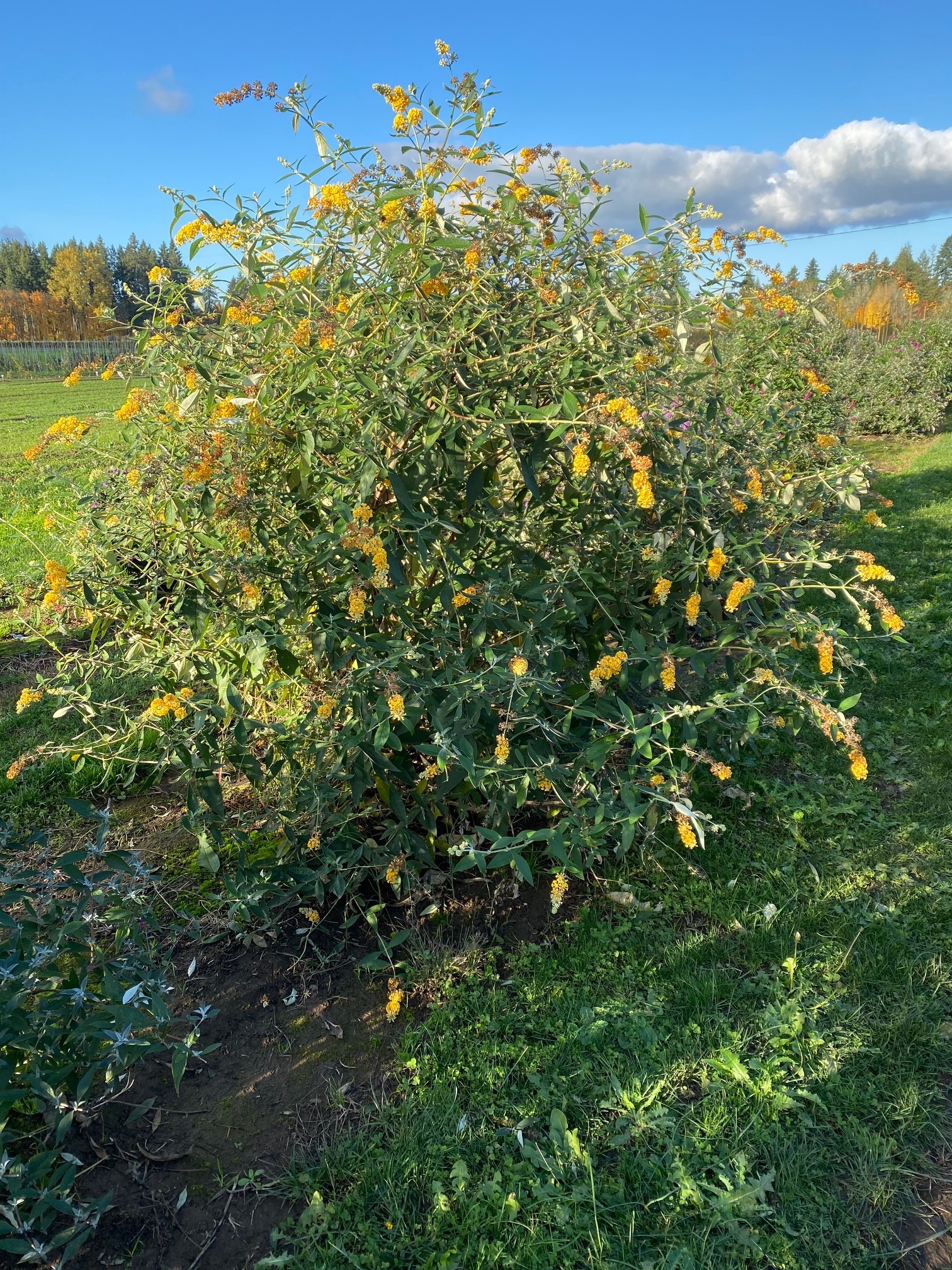Today, Tyler successfully defended his undergraduate research thesis, entitled ‘Invest in Vegetables: A Cost and Benefit Analysis of Container Grown Roma Tomatoes (Solanum lycopersicum cv. ‘Roma’) and Italian Basil (Ocimum basilicum cv. ‘Italian’)‘.

His research was inspired by the rush to vegetable gardening, that many households made during the start of the COVID-19 pandemic. Research has shown that there are many benefits to vegetable gardening, including social, emotional, physical, and financial. However, those in rental housing, or otherwise without easy access to land, were largely locked out of accessing these benefits.
Although previous research has shown that in-ground and raised bed vegetable gardening can yield positive economic benefits, to date, no studies (that we know of) have quantified the financial costs and benefits of growing vegetables in containers. Tyler thus set up a system of 5-gallon and 3-gallon bucket gardens, planted with Roma tomatoes, or Roma tomatoes plus Italian basil. He kept careful track of the cost of materials, and the time he spent gardening. He also kept careful track of the harvest he pulled off of each container.
Over the course of his study, he successfully learned about and fought back Septoria leaf spot, and blossom end rot. We learned that Roma tomatoes, in particular, are susceptible to blossom end rot. On top of these horticultural plant problems, Tyler’s research was abruptly halted by the late summer wildfires of 2020, that made air quality unsafe for him and others to continue their work, outdoors.
Despite these challenges, he was able to glean enough data from his project, to share some interesting findings:
- None of the containers netted a positive economic benefit, in the first year of gardening, largely because the cost of materials outweighed the financial benefits of the harvest.
- If the project were continued into year two, he projects that he would have had a positive financial outcome for the tomatoes grown with basil, in the 5-gallon containers.
- Across the course of the season, he only spent 30 minutes tending to each container. Because he had few garden maintenance tasks, the time invested in container gardens was minimal. This is an important finding, for folks who may shy away from gardening because of lack of time.
- As expected, the 5-gallon containers yielded more than the 3-gallon tomatoes. The 3-gallon containers stunted plant growth too much, to recommend them as a viable container gardening system. [As a side note, we were given the 3-gallon containers, for free, which is why we included them in the study.]
- The fair market value of Roma tomatoes was fairly low (~$1.00 per pound). Thus, the net economic benefit of growing Roma tomatoes was also low. Basil, on the other hand, was a high value specialty crop that helped to raise the overall economic value of crops harvested from the buckets.
If you are interested in seeing Tyler’s thesis defense presentation (~30 minutes), you can do so, at the link below.
https://media.oregonstate.edu/id/1_8v2t4zd4?width=400&height=285&playerId=22119142
Tyler will be graduating in a few days, with a degree in BioResource Research from OSU! He’s worked in our lab group for two years, and has been an absolute joy to learn and work with. We wish him the very best on the next adventures that await him.






2 Comments
Add Yours →The economics of growing your own food on a small scale compared to commercial farms has always iffy at best. To grow your own, as Tyler shows, there is an investment in materials. If planned well some can be reused in following seasons lowering your costs. A far more subjective value is much more difficult to quantify. The pride in growing, a taste in your produce that cannot be obtained in store bought produce. The cost to grow animals for consumption is often the same or slightly more than commercially available meat but is usually a lot tastier because of the way you have handled the animal that is not practical on a commercial basis. I feel Tyler’s thesis shows the more practical aspects but measuring the subjective values would be interesting if possible as that is why many people stay in the gardening and animal raising endeavors even if the economics don’t always seem to make sense.
Thank you for this great feedback. There are many, many studies that show the positive benefits of gardening to emotional and physical health, youth development, networking and community, and more. Tyler cites these studies in his thesis, and considers how these benefits might vary for those folks who garden in containers versus garden in ground.
~Gail